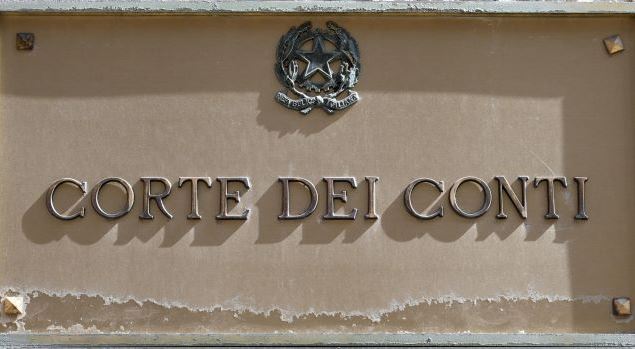According to a definition of the President of the Republic Sergio Mattarella, The Court of Auditors is “an organ of constitutional relevance, also at the service of the state-comunity state and impartial guarantor of the correct management of public resources” (speech, inauguration of the judicial year 14 February 2025).
What does the Court of Auditors do
As established by article 103 of the Constitution, the Court of Auditors exerts the preventive control of legitimacy on government documents, and also the subsequent one on the management of the state budget. In the cases and forms established by law, participate in the control on the financial management of the entities to which the State contributes in ordinary via. It refers directly to the rooms on the result of the response executed ».
So that this task can be carried out with transparency and impartiality, “the law ensures independence” of the Court of Auditors and Accounting Magistrates, its members “in the face of the government”like what happens for the Council of State, the highest body of administrative jurisdiction. The Court of Auditors exerts the functions of accounting judiciary, a reason why it is important to underline and safeguard its independence.
As the present presentation on the official website of the Court states, In the “democratic system, it is provided that the management of public resources is subject to a control whose purpose is to” pursue the appropriate and effective use of public funds, the search for a rigorous financial management, the regularity of the administrative action and the information of public powers and the population Through the publication of objective relations “, in the Italian legal system this fundamental function is attributed to the Court of Auditors”.
A little history
Its original institution dates back to the Kingdom of Italy and the Law 800/1862, It therefore precedes the Republican Constitution. “In constitutional architecture, the Court is inserted both among the bodies of guarantee of legality and the good performance of the administrative action and the protection of the balance of public finance (art. 100, second paragraph) both among the jurisdictional bodies (art. 103, second paragraph). From the said double investiture derives the centrality of the role of guarantee of the correct management of the public resources of the Court of Auditors which, in the exercise of the control functions, is neutral, autonomous and independent body both with respect to the government and to Parliament, and, in the exercise of the jurisdictional functions, is part of the judicial order in all respects “.
In progress reform: administration more efficient or free all on public finances?
Speaking of the Court of the Auditors, in the night on 1 and 2 April, the bill of the Minister for European Affairs Tommaso Foti) obtained favorable vote in the Justice and Constitutional Affairs Committee Committee: a controversial reform, scheduled in the Chamber on Monday 7 April and approved the 9 from the first of the two branches of Parliament.
At the basis of the reform according to those who propose it there would be the objective of making the public administration more shipped in decisions, eliminating the so -called “fear of signature”that is, that attitude of caution that would lead the managers of the public offices not to act, for fear of being called to respond to their documents, taking refuge in awaited and for forms of defensive bureaucracy.
The formula is the same with which the disputed decision to abolish the crime of abuse of office has been explainedinstead of reformulating it with a better defined typing as they would have suggested the supranational commitments against corruption made with the Merida Convention (UN Convention for the fight against corruption) and the need to somehow protect the citizen damaged by the acts contrary to the office duties of the official public.
Also in this case the criticisms do not only come from the oppositions and by the Court herself, but push a non -accused of extremism such as The sun24ore to define the reform as icastically as “Savepolitics”due to the reduced risk of the administrators to be called to respond for tax damage except in cases of willful misconduct and for the speculation risk of not supervising enough on the appropriate use of public resources, making most of the possible damage to the community fall, given that, every time they are public resources, they are distracted or expenses inappropriately or useless, their cost, if not remedied by those who are called to respond, falls on the entire citizenship.
The controversial points
Several critical points. One concerns the so-called amendment amendment Montaruli- sbardella, from the name of two FDL parliamentarians who proposed it, so “the owners of the political bodies” (may be mayors, presidents, councilors, councilors …) are always presumed in “good faith”, at least “until proven otherwise” for all the “acts adopted in the exercise of their skills” who have been “proposed or signed by Technical or administrative offices “. Except for the cases of willful misconduct and those in which an opinion contrary to the specific act had arrived, there would be, according to the critics of the reform, a sort of salvoncotto that would also embrace cases of gross negligence and serious negligence.
And speaking of opinions, the preventive advisory power of the Court would be expanded, widening the possibility for administrators and political contacts to ask the Court, even outside the subjects and circumstances provided so far, By instituting a silence-assent that is worth as a positive opinion, which would translate into a sort of preventive shield.
The other controversial issue is the fact that the accounting judiciary cannot request to compensate the damage over 30% of the sum and in any case no later than double the allowance perceived by the person who is responsible. This would determine the fact that in many cases 70% of the sums will be given automatically for lost, because it cannot be recovered.
In addition, the association of the accounting judiciary denounces in a press release the risks of “impoverishment and emptying of the functions in the Court», With” serious repercussions on citizens who have the right to have an independent, autonomous and guarantor judge of the correct use of their money “. In particular, accounting magistrates worry: «Confusion of functions, hierarchization of the prosecutors, forms of control at the request of the controlled, secret of some resolutions of the control, opinions of the Court who scan the responsibility of public administrators, presumption of good faith of politicians. It is only clear – concludes the note – that the orphaned country is left of actual control of public finances ».
What is the “tax shield” and why it expires
The reform aims to overcome the so -called “taxman shield”: the suspension of tax liability for gross negligence, introduced in the urgency and emergency to streamline decisions in the full pandemicin the summer of 2020, limiting only the cases of willful misconduct and gross negligence for omission tax liability.
Since then the shield has been repeatedly extended until the last Milleproroghe expiring next April 30th. A further extension is not likely, Because the Constitutional Court in June 2024 (132/2024) interpeered on the topic specified that the provision of the CD tax shield is legitimate only if temporary and instrumental to face extraordinary needs of necessity and urgency. This is why a further extension, if remission to the Consulta, could be declared unconstitutional.
For this reason, the majority would have the objective of ensuring the reform of the Court of Auditors by that deadline. But this would be possible only if the text was as they say armored That is, not liable to corrective and amendments, due to technical times. In any case, possible that the first approval in the Chamber may be enough to secure another extension of the “shield” having shown the government of having activated to overcome it.
What the Italian public accounts of the Catholic University thinks about this
“The Foti bill,” observed on 7 February last, when the route of the DDL had not yet been accelerated in view of an approval of an armored text that would limit the examination of Parliament, in an article entitled The bill Foti: attack on the Court of Auditors or measure of efficiency?, Alessio Capacci“Has the merit of wanting to reform the system of administrative liability in order to guarantee greater efficiency of the PA, and to do so through the action of Parliament. However, it is necessary to avoid lowering the guard too much. Making a request for preventive control possible, above certain amounts, is reasonable, but as proposed by the Constitutional Court it should be accompanied by a strengthening of the effectiveness of intervention of the Court of Auditors. Typing better the gross negligence would in any case be useful and would reduce the fear of the signature (assuming that this is the problem that brakes the efficiency of the PA and not the lack of incentives, as we believe). In addition, reducing the Court’s response times requires its reorganization to prevent its controls from being substantially circumvented ».








